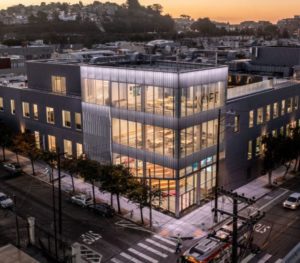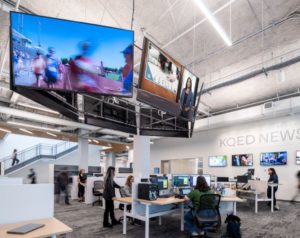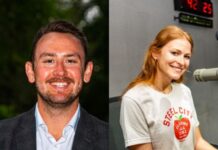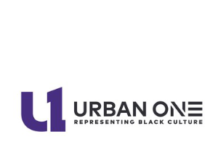
KQED, the NPR and PBS member station serving Northern California has completed the redesign of its San Francisco headquarters. Construction on the project began in fall 2019. This news coincides with the close of Campaign 21, an eight-year fundraising campaign that financed the project and accelerated growth over the past decade of KQED’s reporting and content teams and services.
“We are a primary source of information for the entire Bay Area,” says KQED President and CEO Michael Isip. “Our spectacular home features technology that expands our capabilities to provide trusted and quality content, a work environment that will enable the best talent in public media to thrive, and spaces where we can build community for bold conversations, civic engagement and cultural experiences.”
Designed by San Francisco-based architects EHDD, the project has transformed the station’s Mariposa Street headquarters into a state-of-the-art center for civic and cultural engagement and locally-focused journalism. EHDD’s design increases the station’s visibility to the public; maximizes space with flexibility to accommodate staff, partners and additional growth; and features new community spaces that enable the audiences to engage with KQED on site through events, media-making and community building.
The facility features upgrades to the station’s decades-old broadcast and technological infrastructure to improve services, ensure continuity of service during major emergencies, and position the station for the constantly evolving future of broadcasting. Aging video and audio cabling and equipment have been replaced with a cutting-edge network to support the work of the newsroom and content makers. Modernized production and studio spaces incorporate the most up-to-date technology to secure KQED’s ability to provide trusted, quality programming where, when and how Bay Area audiences want it. 
Civic convening and public participation are core to KQED’s mission and the new building. The Commons is a 232-seat event space and studio that is the setting for KQED Live, a new in-person and streaming live event series. Featuring a diverse series of conversations, performances, screenings and experiences hosted by KQED personalities, audiences have already enjoyed an evening with Speaker of the House Nancy Pelosi, discussions with KQED reporters about the California housing crisis and police misconduct, a night devoted to Bay Area ghost stories, and more.
The $94 million building redesign is made possible by Campaign 21, a capital campaign launched in 2013 to address KQED’s aging infrastructure and transform the station from a traditional broadcaster into a digital-multimedia service and community convener. Nearly 5,000 individual donors contributed to the campaign, which raised approximately $140 million, surpassing the $135 million campaign goal. In addition to building investments, Campaign 21 has enabled strategic investments in local news, arts, science, education services, plus digital production, distribution and infrastructure.
With Campaign 21 contributions, the station has been able to make the following strategic investments:
- The redesign of KQED’s headquarters, which modernizes the station’s entire broadcast and technology infrastructure while creating new spaces and opportunities for community engagement, including The Commons and the PRX Podcast Garage at KQED and more.
- The expansion of KQED’s newsroom and its enhanced capacity to deliver local and statewide coverage. Investments have established local Politics and Government, Silicon Valley and Housing news desks; expanded coverage through weekends; and increased breaking news and investigative coverage.
- The growth of KQED’s science and environmental media unit — now one of the largest on the West Coast — providing daily reporting on science and health research, climate change and the environment, as well as producing the internationally popular and award-winning Deep Look YouTube series.
- A dedicated arts and culture multimedia unit that produces compelling stories for radio, television and digital, exploring and celebrating the creativity and diversity of Bay Area arts and culture, including the ongoing video series If Cities Could Danceand podcast series Rightnowish.
- Nationally recognized digital-education services KQED Learn and KQED Teach online platforms that promote media literacy through tools and curriculums for youth, teachers and caregivers. The Education group also producesAbove the Noise, a YouTube video series for teens that investigates controversial subject matter to help young viewers draw their own informed conclusions while inspiring media literacy and civic engagement.
An expanded digital presence enabling KQED content to be delivered to audiences in the way they prefer: through our website, mobile app or via podcasts and video.





